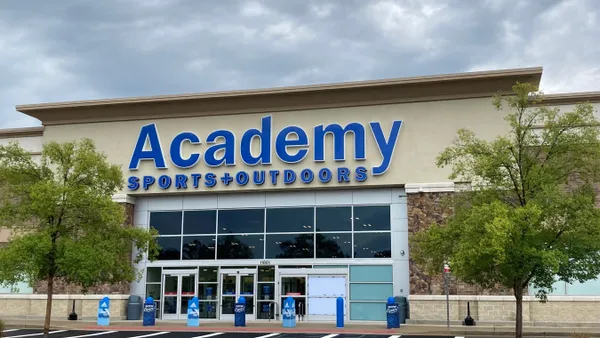Dive Brief:
- If the U.K. splits from the European Union without a withdrawal treaty, it could result in tariff hikes of up to 45% on "some everyday food items," according to a joint statement emailed to Supply Chain Dive, issued Thursday by the British Retail Consortium (BRC), Northern Ireland Retail Consortium (NIRC) and Retail Ireland.
- "A hard Brexit means a hard border and the disintegration of supply chains that have been built up over 40 years of EU membership," Aodhán Connolly, the director of the NIRC, said in a statement. "This is not a binary choice for Northern Ireland between trade with the UK and trade with the EU. Our economy is built on access to both markets and we need that to survive."
- Retailers will likely see an increase in costs regardless of whether there is a Brexit agreement or not due to "checks at ports and other supply chain disruption," according to Thomas Burke of Retail Ireland. Retailers would have to pass these costs along to consumers, Burke said in the statement.
Dive Insight:
The EU is the U.K.'s largest trading partner. Goods coming from the EU accounted for 53% of U.K. imports in 2017, according to the U.K. Parliament.
In 2017, road vehicles were the U.K.'s largest import from the EU at 46.8 billion pounds ($60.8 billion). Fruits and vegetables were in the top 10, accounting for 6.9 billion pounds ($8.9 billion) of imports the same year.
"Our supply chains are highly integrated, with food ingredients coming from both Ireland and the EU, and 60% of the £2 billion of NI agri-food bound for Great Britain crosses the Irish sea via Dublin," William Bain, head of the EU and International at the BRC, said in a statement. "This will affect the price of shopping in the Prime Minister’s constituency of Maidenhead in the same way as it will in Belfast or Dublin, with cost rises."
If the U.K. doesn't agree on a deal by March 29 then its trade with the EU will fall under World Trade Organization terms. This means an increase in tariffs on items that include agricultural products.
The terms also require the U.K. to treat all countries equally, so it would have to stop and check goods flowing in from every country. Though one former WTO negotiator told the BBC there may not be any impact if the U.K. ignores these rules and continues to have an open border with Ireland. The WTO doesn't have an enforcement body.
Still, the three retail organizations are calling for the U.K. government to figure out a plan that avoids this no-deal scenario.
"A ‘no deal’ outcome would have devastating economic consequences, potentially jeopardising years of positive economic development and integration across the islands of the UK and Ireland," Bain said. "It is imperative that this is avoided."














